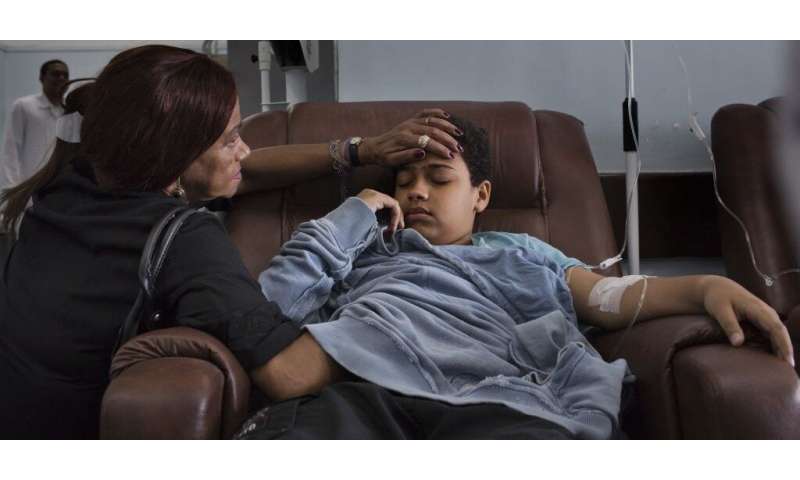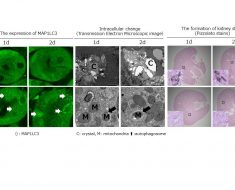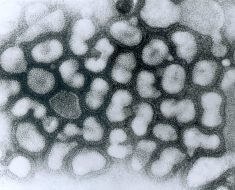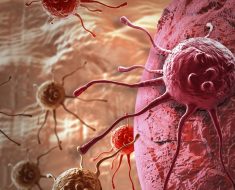
University of Alberta researchers have developed a user-friendly dengue test that could help diagnose the growing tropical disease more quickly and efficiently.
Every year, nearly 400 million people are infected by dengue, a mosquito-borne disease that continues to spread in tropical climates. While a quarter of those patients will experience flu-like illness, a small fraction could develop severe dengue, a potentially fatal condition.
In a new study, U of A researchers say they’ve developed an affordable one-step test for dengue that requires just a small blood or plasma sample and a portable tester.
“You could take somebody’s blood and run a single test to see what they have,” said Ninad Mehta, lead author of the study. “You would know in about two hours what it is.”
Diagnosis difficult
Mehta conducted the study while working in the U of A’s School of Public Health under Stephanie Yanow, who has spent years working on diagnostic tests for malaria.
Diagnosis is one of the biggest challenges in treating tropical fevers. Early dengue symptoms resemble malaria, chikungunya, Zika and other diseases. Rapid diagnostic tests can detect antigens or proteins, but they aren’t always specific enough and can lead to false positives. More precise diagnosis requires expensive equipment, multiple steps and training. In remote areas where the disease is rampant, it’s not always feasible.
Mehta’s dengue test would combine the best of both worlds: a highly specific test that’s affordable and portable. It depends on a molecular technique called RT-PCR, which involves finding a stable sequence of viral RNA, translating it into DNA and multiplying the genetic material to the point where it can be detected. It piggybacks on the growing availability of Open PCR machines, a versatile DNA-detection technology that has become cheaper thanks to crowdfunding and open-source technology.
Because there are four distinct variants of the dengue virus, Mehta had to find specific genetic material common to all four but not found in viruses with similar symptoms. He focused on a 253-nucleotide sequence of RNA, which was tested on 126 archived samples from a dengue study in the Philippines. The results were compared with other types of testing.
The test held up well to existing kits, particularly in the first four days of symptoms when the presence of the virus is highest. At under $5 per test, Mehta believes this testing could help public health agencies get better bang for their buck.
“When you start treating one disease, another pops up,” Mehta said. “It’s a game about shifting resources whenever you can.”
Research for the front lines
While he recently moved to another post-doctoral fellowship, Mehta credits Yanow for helping him move from behind the bench to the front lines.
Mehta completed his Ph.D. at the U of A, but he began his education in western India, where he grew up. During his doctoral work in virology, he developed an increasing need to see a more direct impact of his studies. His resolve was crystallized by the deaths of two family members in India due to infections.
“Working on advancing science, you never know where it’s going to go or how long it’s going to take for somebody to use the information you generate,” said Mehta.
Yanow’s ultimate vision is a suite of RT-PCR tests that could differentiate between tropical diseases with a single blood sample, including drug-resistant malaria strains. That information could transform care in some of the world’s poorest areas while proactively informing public health responses.
“Eventually, we’d like to be able to test for chikungunya and Zika,” Yanow said. “We could also test for drug resistance genes directly in a sample. That would be useful from a public health point of view to know if resistance is emerging, but would also help doctors choose the best treatment options.”
Mehta jumped at the chance to work with Yanow, who allowed him to see the power of the diagnostic tools up close. He conducted field trials in central India on tests for malaria parasites, work that was instrumental in his development of a test for dengue.
With dengue on the rise and likely to expand in a warming climate, the need has never been greater. The Philippines recently declared a national emergency, outbreaks have occurred in four countries in the Americas and Bangladesh has been wracked by infections.
Mehta hopes his work could help save lives, but he recognizes it still could be years away. Because the new dengue test requires cold chemicals, Yanow’s lab is looking at using vacuum-drying to create a powder that could withstand the heat in tropical settings. More work will be needed for field trials.
Source: Read Full Article





